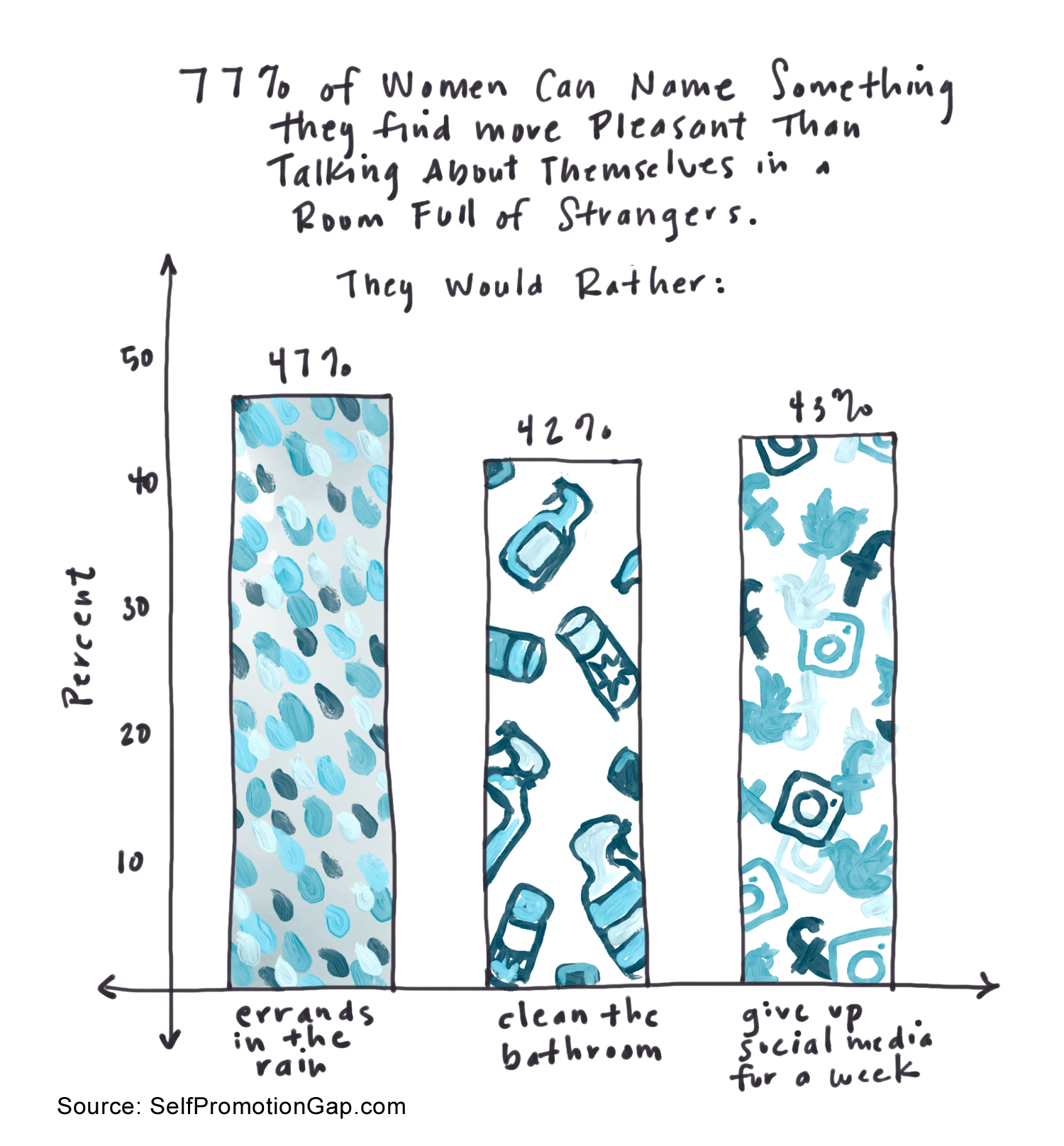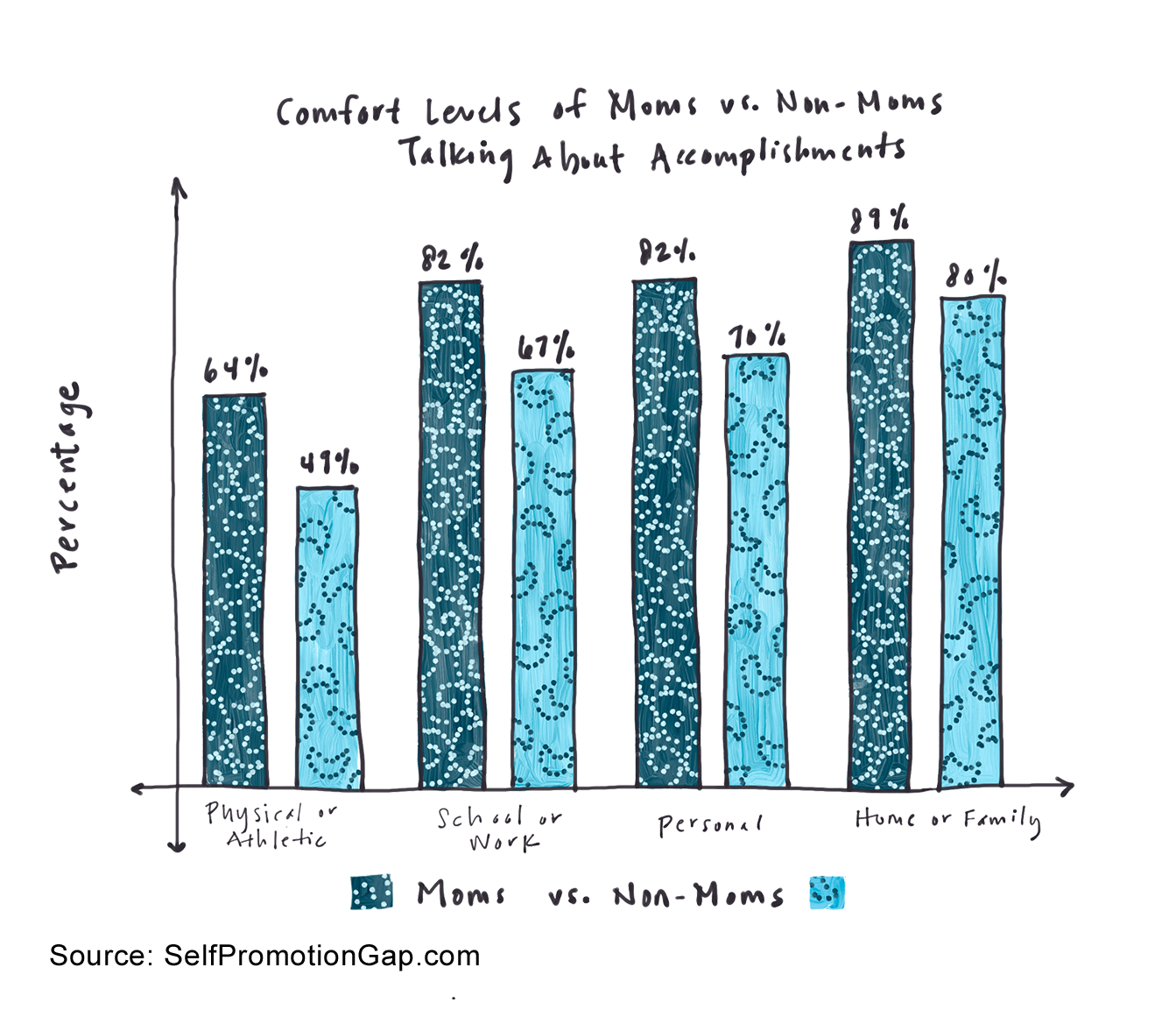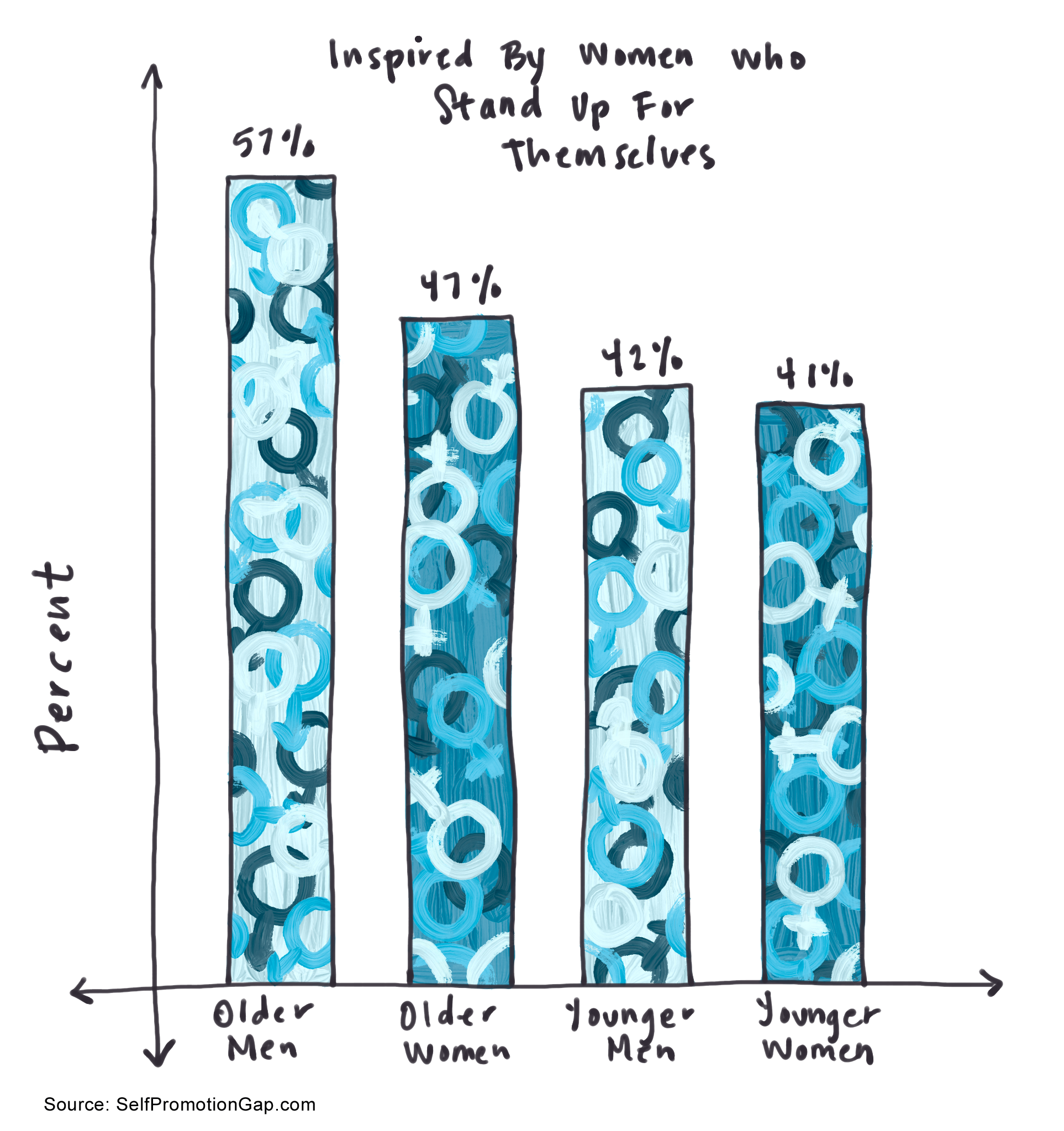We know a lot of accomplished women.*
Matriarchs and mentors who’ve held up their families and communities during periods of hardship and uncertainty. Pioneers and changemakers who have led 15-, 20-, and 30-year-long careers. Whether they’re working inside or outside the home, we—friends, family, neighbors, colleagues—recognize these women’s successes and we champion them.
But are these women championing themselves?
Or are American women muffling their voices and underselling their accomplishments, thereby minimizing their impact as role models and mentors?
We surveyed a nationally representative group of 1,016 American adults (517 women and 499 men) and found that, as a whole, the majority of women avoid talking about their strengths and accomplishments. And factors like race, age, and parenting status seem to matter with respect to which women are more confident and capable of self-promotion.
The Self-Promotion Gap is a survey exploring women’s fear of self-promotion, commissioned by Mighty Forces, Southpaw Insights, Upstream Analysis and Grey Horse Communications.
*“Women” refers to all people who identify as female; “men” refers to all people who identify as male.
Women find other women’s accomplishments inspiring, but avoid talking about or downplay their own.
This creates an obvious conundrum — one we’re calling the self-promotion gap.
A majority of women (83%) have been inspired by hearing women talk about their successes and accomplishments, but 7 in 10 (69%) women would rather minimize their successes than tell people about them.
Question: Does this conundrum actually present an opportunity to reframe?
If we reframe self-promotion as an altruistic activity, will more women be willing to share their accomplishments and abilities?
Not only do women avoid self-promotion — they would rather downplay their accomplishments than own up to them.
In other words, women are more comfortable making themselves seem like less than they are. This is especially troubling when you consider that women are still paid less than men, and subjected to so many other forms of inequality in the workplace and beyond.
But! Interestingly enough, the narrative about women hating self-promotion does not apply equally to women of all racial backgrounds.
In fact, African American (44%) and Hispanic (47%) women are far less likely to downplay their strengths and abilities than white (60%) women.
Furthermore, just about half (49%) of African American women are “very comfortable” talking about their accomplishments with friends or family members, compared to only 1 in 3 white (33%) and Hispanic (32%) women.
Question: Why might African American and Hispanic women be less averse to self-promotion than white women?
Older women (55+) are much more averse to self-promotion than younger women.
They’re also a lot more likely to downplay their strengths and abilities (66%) than women under 55 (53%). And older women are also 20 percentage points more likely to want to blend in (83%) than young women aged 18-34 (62%).
Hearing other women talk about their accomplishments inspires young women, but women with more life experiences, and presumably more accomplishments, are uncomfortable talking about their accomplishments in front of a crowd (41% vs. 31% for women in general).
Question: Does this create an “inspiration deficit” for young women in search of role models?
The (more encouraging) flip side of this finding: Young women are much more interested in standing out than older women are — a sign, perhaps, that the tide is turning?
Young women (18-34) are more than twice as likely as older women to say they want to stand out (38% vs. 17%).
And then there are moms of kids age 18 or younger, who are significantly more likely than non-moms to be comfortable talking about their accomplishments—in and out of the home.
Unlike women overall, moms are more likely to talk about their strengths and abilities (53%) than downplay them (47%). Interestingly, we didn’t see a statistically significant difference between dads and non-dads in this area.
Here are how moms and non-moms compare when it comes to their comfort level talking about different kinds of accomplishments:
Physical or athletic accomplishments: moms 64% vs. non-moms 49%
Accomplishments at school or work: moms 82% vs. non-moms 67%
Personal accomplishments: moms 82% vs. non-moms 70%
Accomplishments at home or with family: moms 89% vs. non-moms 80%
Question: What are the underlying factors that lead mothers to feel more comfortable talking about their strengths and accomplishments? And what might explain why fathers don’t experience the same increase in comfort?
Also: Women aren’t that excited to hear men talk about their accomplishments. While 48% of women “strongly agree” that they have been inspired by hearing other women talk about their own success (83% if you add in those who “somewhat agree”), only 24% “strongly agree” (65% including those who “somewhat agree”) that they have been inspired by hearing men talk about their own successes.
Notably, older men are more inspired than older women, younger women, and younger men by women “who stand up for themselves.”
57% of men aged 55+ are inspired by women who stand up for themselves, compared to 47% of older women, 42% of younger men, and 41% of younger women.
It’s important, however, to re-emphasize that all survey participants responded positively to women who talk about themselves—about achieving their goals (50% overall and 61% of younger women), commanding respect in their fields (50% overall/58% of older women), and living according to their values (59% overall and 63% of younger women, 65% of older men and 66% older women).




